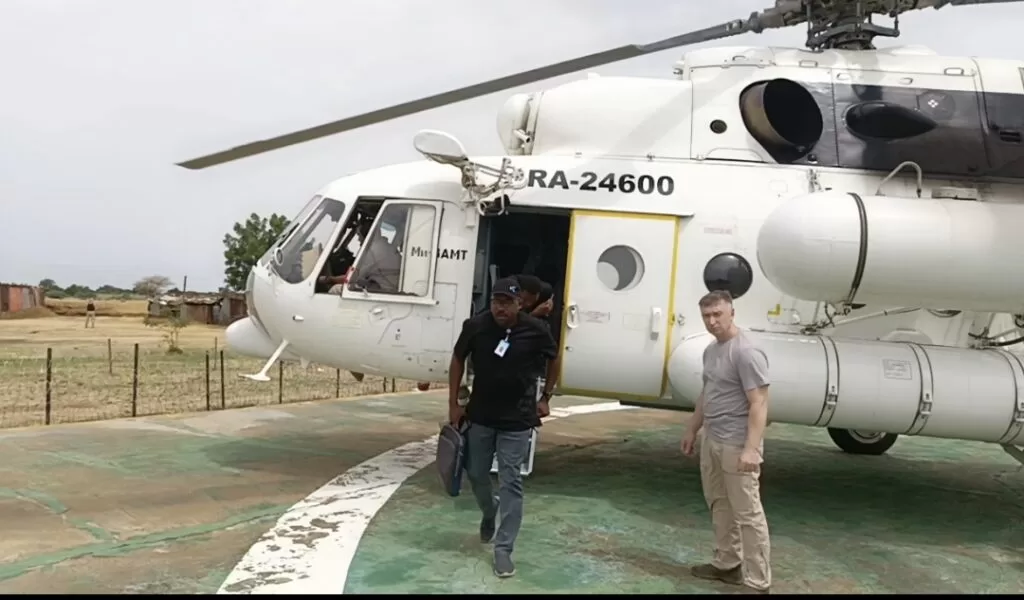My recent trip to Baga was an unforgettable odyssey. It began with a breathtaking military chopper ride from the Air Force Base in Maiduguri to the 403 Amphibious Brigade Base of the Sector-3 Multinational Joint Task Force (MNJTF) in Baga, Borno, northeast Nigeria.
The hour-long flight, shared with 22 journalists from Nigeria, Chad, and Cameroon, offered a bird’s-eye view of a landscape brimming with untapped potential. As we soared through the clouds, the vast expanse of receded Lake Chad unfolded beneath us, interspersed with shimmering patches of water, quaint villages, and fertile lands. The sight was nothing short of mesmerising, sparking reflections on why such abundant resources remain neglected amidst a backdrop of hunger, joblessness, and poverty.
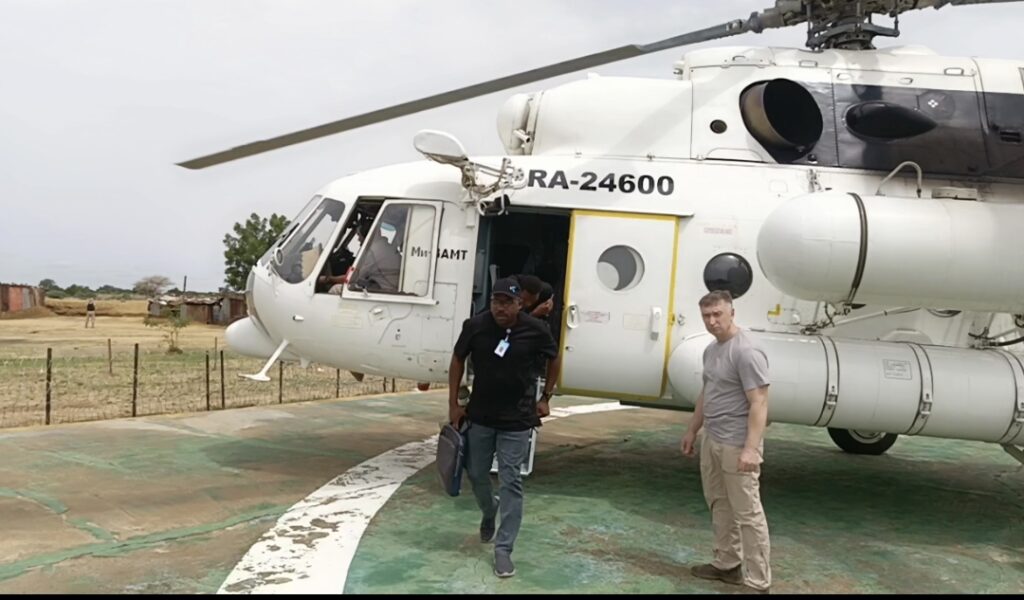
Flying over these communities gave us a glimpse of the residents’ resilience in the face of adversity. The town of Monguno appeared, encircled by camps for returnees and lined with dug-up parapets and tiny lakes stretching towards KrossKauwa. The closer we got to Baga, the more the scars of conflict became visible. The devastation was stark, from the ancient town of Kukawa to the ravaged infrastructure of Kauwa, Mile 4, and the College of Fisheries. Baga, once vibrant, now stood as a ghostly shadow of its former self.
Upon landing at Mile 4’s military base, we were greeted by a convoy of military gun trucks. Lieutenant Colonel RO Kolawole, the Chief of Staff, who stood in for Commander Brigadier AO Ajagbe, welcomed us warmly at a briefing ceremony with light refreshments. He gave a perfunctory speech to give us a heads-up on where to visit and who to meet.
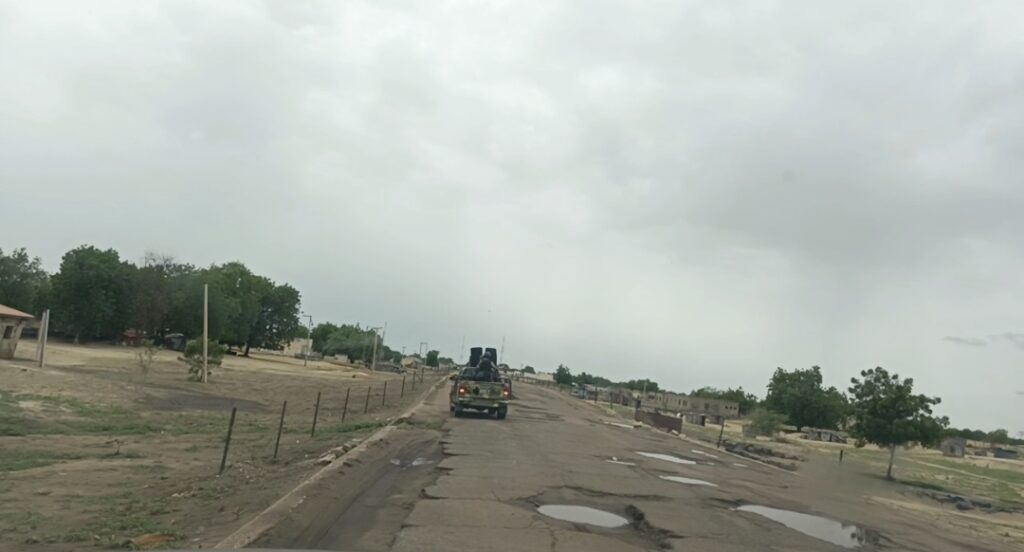
“Your tour of the town, especially to the Quick Impact Project sites, as well as your free interaction with some of the locals, will afford you first-hand information on the improvement achieved in the area of peace and return community livelihoods as a result of Operation Lake Sanity II,” said Lieutenant Colonel Kolawole.
“Gentlemen, all we want you to see is the positive impact of Operation Lake Sanity II in the communities where our troops operated and carried out what we call Quick Impact Projects,” Lieutenant Colonel Abdullahi, Spokesperson of the MNJTF in Ndjamena, who was leading the team of journalists, stated.
As we embarked on a short road journey to Baga, the extent of Boko Haram’s destruction became evident.
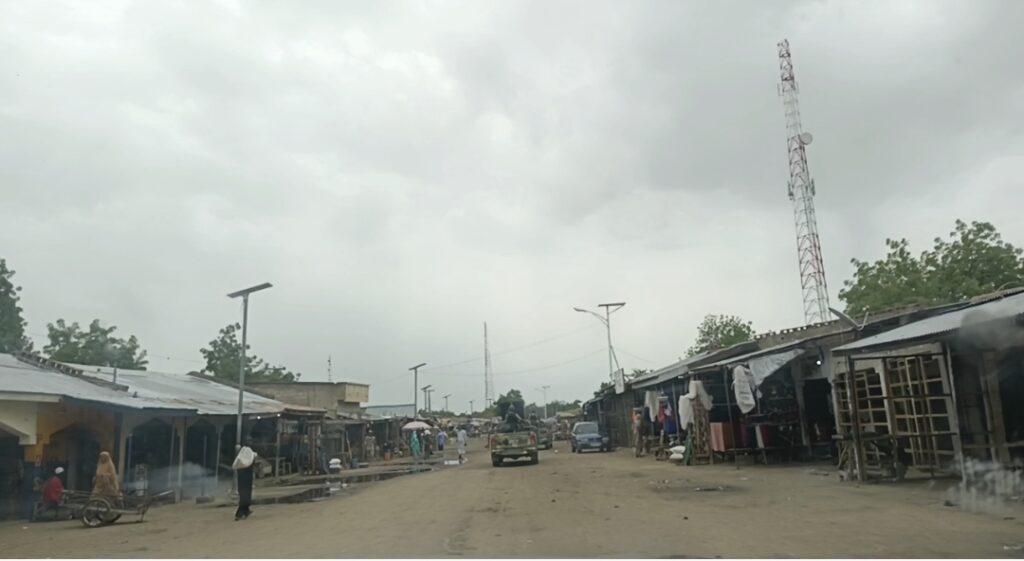
The road was pockmarked with craters, and the ruins of public infrastructure loomed large. Makeshift military posts occupied abandoned fuel stations, and the town itself bore the hallmarks of a garrison, with numerous military formations stationed throughout. Weather-beaten walls, riddled with gaping bullet holes from assault rifles, evoke memories of the nightmarish days of the insurgency when the value of life and blood was disregarded.
In the heart of Baga, life struggled to re-emerge. At the residence of the District Head of Baga Alhaji Zannah Arjunoma, a group of elders sat in solemn conversation under a tree.
Alhaji Arjunoma, resplendent in his flowing regalia, expressed profound gratitude to the MNJTF for their efforts to rebuild the community’s critical social infrastructures. His heartfelt speech underscored the importance of the military’s contributions to local infrastructure, security, and capacity building.
Our next stop was a revived public primary school, where the headteacher, Hamman Buba, proudly informed us of the 1527 pupils now attending classes. He said the MNJTF’s classroom renovations and provision of learning materials, toilets, and security had made this possible. The children’s eager faces and the headteacher’s gratitude highlighted the transformative impact of the military’s presence.
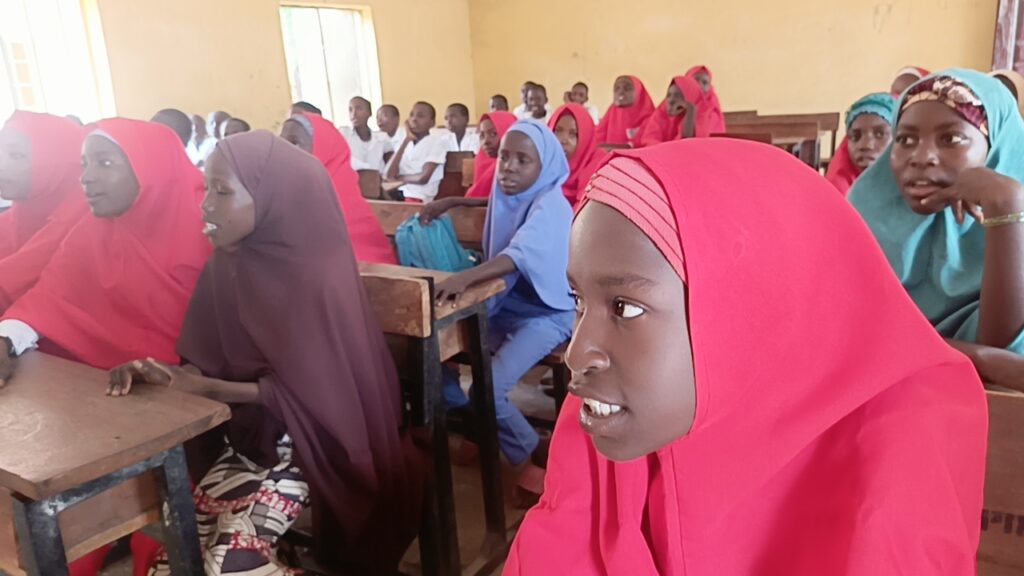
At a local clinic, we witnessed further evidence of the MNJTF’s work in renovating facilities and ensuring healthcare services for the community.
Our final visit was to a farming area where a newly installed state-of-the-art borehole supported dry-season farming. Farmers, like Hadi Surajo, the onion grower, expressed their relief at the security provided by the military, which allowed them to work without fear.
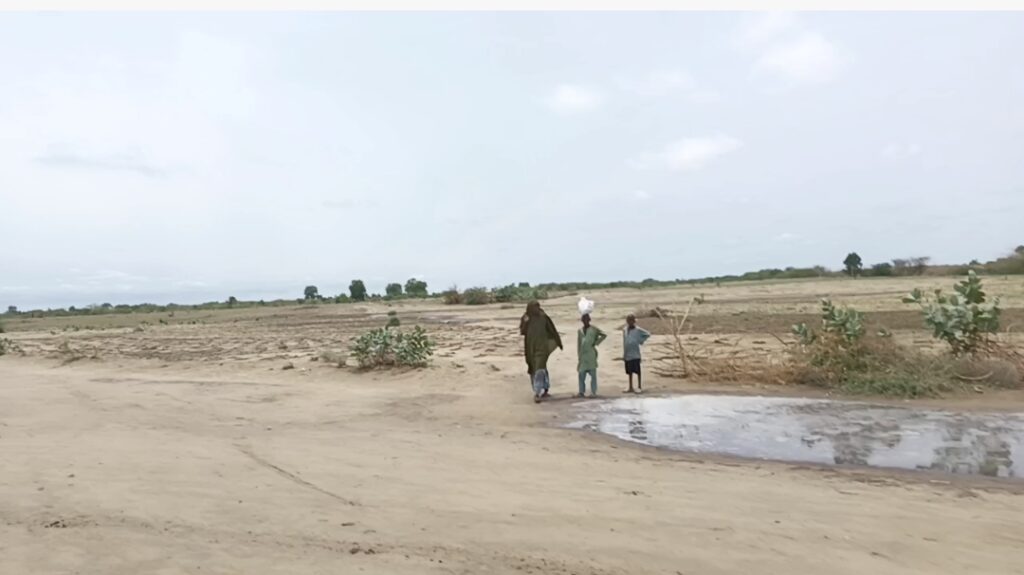
“As long as we confine ourselves to the nearby farmlands, we are safe. Those who may get harmed by Boko Haram are those who ventured beyond the parapets far into the bushes, ” he said.
With less than three hours in Baga, our visit was a whirlwind tour of resilience amidst ruins. As we boarded the chopper for our return, the sharp contrast between Baga’s past prosperity and its current struggle weighed heavily on my mind. The flight back to Maiduguri was a silent, introspective journey, the desolation of Baga lingering in our thoughts.
Some conversations I had with the locals, especially Buba, the head teacher and Malam Ibrahim, a local fisherman, carried both hope and frustration:
“I was born and raised here in Baga,” Buba, the headteacher, said with a hint of nostalgia. He expressed his sadness each morning upon waking up to the stark reality of what has become of his beloved town. “I feel very sad; it has been a terrible experience and memory for me. Reflecting on the prosperous past and comparing it to the present, one can’t help but feel profound sadness because Baga has lost everything – in terms of business, agriculture, and fishing. Aside from the primary and secondary schools here, we no longer have any tertiary education institutions. The College of Freshwater Fisheries, which used to be here, has been relocated to Maiduguri due to insecurity.”
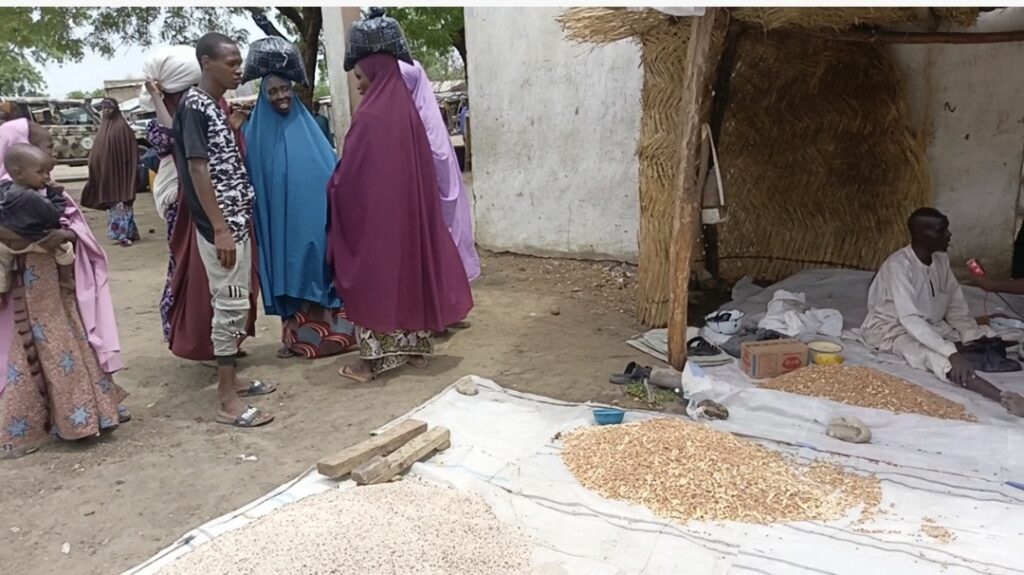
Fishing has been the signature trade of the people of Baga. The multi-billion naira business was adversely affected by the Boko Haram insurgency, which led to hundreds of fishermen losing their livelihoods.
“We are happy that fishing has resumed, but our men lack the resources to fully plunge back into the business,” said Muhammadu Maikifi, the chairman of Baga Fish Traders. His words encapsulated the bittersweet reality of Baga – a community caught between the resilience of its people and the remnants of conflict that still shackles their progress.
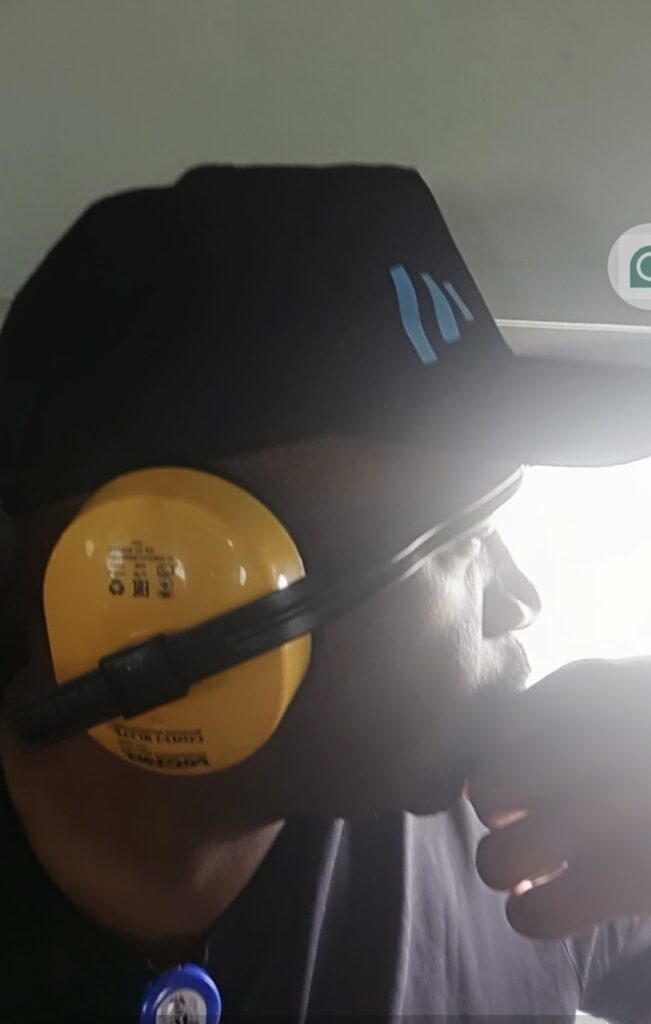
As the chopper lifted off, I looked back at the ghostly town. The military’s presence had brought a semblance of normalcy, but the road to complete recovery was long and fraught with challenges. The vast, untapped potential of the land below reminds us of what could be achieved with stability and development.
This trip to Baga was more than just a journalistic expedition; it brought to bear the complexities of recovery in conflict zones.
Support Our Journalism
There are millions of ordinary people affected by conflict in Africa whose stories are missing in the mainstream media. HumAngle is determined to tell those challenging and under-reported stories, hoping that the people impacted by these conflicts will find the safety and security they deserve.
To ensure that we continue to provide public service coverage, we have a small favour to ask you. We want you to be part of our journalistic endeavour by contributing a token to us.
Your donation will further promote a robust, free, and independent media.
